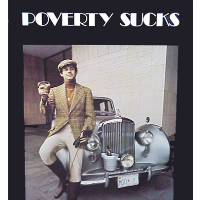West Hollywood Rejects Second-Class Access for Poorer Residents in Swanky Development

Wealthy people who pay top dollar to live in a posh housing development often don't want to share their amenities with the riffraff.
So, what does a developer do when permission from the city to build is contingent on including low-income housing as part of the project? In New York, they have separate “poor door” entrances and restrictions on access to pools, rooftop gardens and the like.
That arrangement didn't prove as popular in West Hollywood. Last week, the city's planning commission rejected a proposed high-rise development, 4-2, after the Community Development Department raised strong objections (pdf) to a separate-but-equal division of amenities.
Low-income residents would enter through separate gates and, staffers pointed out, they would be able to look out over the complex's swimming pool from their apartments, but would be denied access.
Seventeen of the upscale project's 81 units are designated as “affordable housing.”
The developers, Townscape Partners of Beverly Hills and investment firm Angelo Gordon & Co., were chagrined by the decision. “The City of West Hollywood previously recommended comparable amenities, which we had agreed to,” developer spokesman Brian Lewis complained in a statement.
But since the city did not want to consider no pool access as comparable to pool access, the developers decided, they would reconsider. “If the City now feels that shared amenities and access best meet the needs of the residents of the affordable housing units, we are more than willing to accept those conditions of the project,” Lewis said.
Larry Gross, president of the Coalition for Economic Survival, told KPCC that it was the first time such a restricted development had been proposed in Southern California: “I could have never thought that this would come to Southern California, let alone West Hollywood. It's appalling.”
The outsized project has turned heads from its inception in the small, famously-progressive town that is surrounded by the city of Los Angeles. The converted 10-story building at the heart of the project, which used to house the ICM talent agency, was built before zoning restricted buildings in the area to three stories. The project's density far exceeds current density standards and will further complicate congested traffic issues in the community.
The developers received waivers to bypass the restrictions by agreeing to include some “affordable” housing.
‒Ken Broder
To Learn More:
Developer Backs Down on West Hollywood "Poor Door" (by Ben Bergman, KPCC)
West Hollywood Commission Votes against "Poor Door" Housing Development (by Hailey Branson-Potts, Los Angeles Times)
What’s Next, a Bouncer? (by Ronda Kaysen, New York Times)
- Top Stories
- Controversies
- Where is the Money Going?
- California and the Nation
- Appointments and Resignations
- Unusual News
- Latest News
- California Forbids U.S. Immigration Agents from Pretending to be Police
- California Lawmakers Urged to Strip “Self-Dealing” Tax Board of Its Duties
- Big Oil’s Grip on California
- Santa Cruz Police See Homeland Security Betrayal in Use of Gang Roundup as Cover for Immigration Raid
- Oil Companies Face Deadline to Stop Polluting California Groundwater





